Türkiye and the High-Risk Strategic Game
(Baonghean) - If international relations are a competition full of tricks and calculations, then Türkiye deserves to be the most reckless and cunning "player". The "pendulum swing" tactic that Ankara has applied is showing its effectiveness so far.
Pro-Russia or "go" with America
The question of the real foreign policy of the administration of Turkish President Recep Tayyip Erdogan remains a “gray area” for the world. Many people affirm that Türkiye prioritizes relations with the US and the West, through relations with the North Atlantic Treaty Organization (NATO) or connecting with the European Union (EU). However, there is also much evidence to support the assertion that Türkiye wants to become an ally with Russia on a series of important issues, from arms sales, to cooperation in handling the Syrian hotspot, fighting IS terrorism… Simply because this Islamic country always believes that it is “treated unfairly” by the West. However, in general, grasping the main direction of policy choices in Ankara still seems to be a big challenge. In the latest development, Türkiye has surprised observers with its statements.
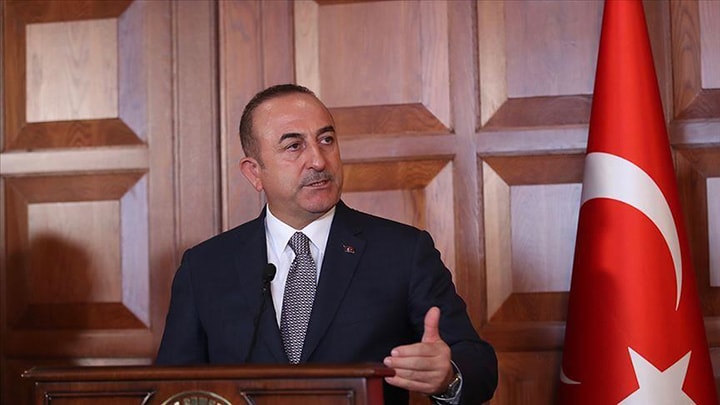 |
| Turkish Foreign Minister Mevlut Cavusoglu made a gesture of “appeasement” to NATO ahead of the bloc’s summit. Photo: Anadolu |
Despite statements by Russian politicians about increased cooperation between Moscow and Ankara in the military sphere, Turkish Foreign Minister Mevlut Cavusoglu said on November 30 that Turkey is a staunch NATO ally and is ready to support any NATO operation against Russia if necessary. Cavusoglu even urged NATO to pay attention to the fact that in addition to deterring Russia on Europe's eastern borders, the bloc also needs to support Türkiye in this regard.
Mr. Cavusoglu also emphasized a number of ways to increase the role of NATO forces on Turkish territory and to add weapons. Speaking at a press conference, Mr. Cavusoglu stated: "Turkey does not object to NATO's military buildup in the Baltic countries and Poland because of Russia." At the same time, the Turkish Foreign Minister also reminded NATO not to forget its other members.
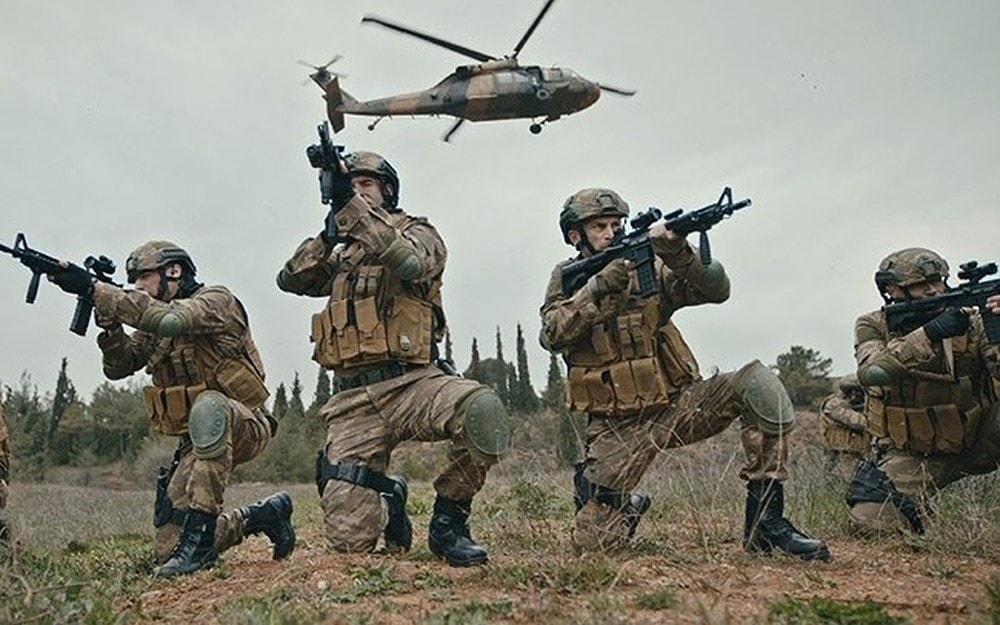 |
| Turkish Army. |
This is a complete reversal of the policy of “dislike” towards NATO that has existed in Türkiye for the past few years. Four days ago, Türkiye expressed a fundamentally different view on this issue, saying that Ankara would not support NATO’s plan to support Poland and the Baltic states in the event of a possible Russian attack, if NATO did not support Türkiye in the fight against Kurdish armed groups in Syria.
The Turkish diplomat's comments appear to be in line with the latest stance from President Tayyip Erdogan. The Turkish president on November 29 criticized his French counterpart Emmanuel Macron over the French leader's statements about NATO. Erdogan's criticism was related to President Macron's November 7 statement in an interview with The Economist, in which the French leader expressed skepticism about NATO's shaky position and said the organization was suffering from "brain death" due to a lack of strategic cooperation among member states.
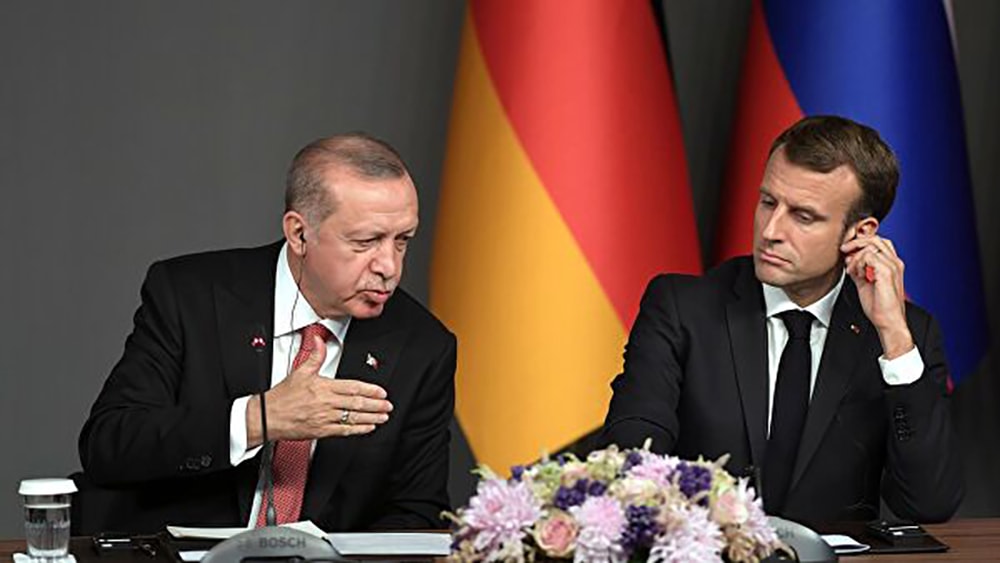 |
| Turkish President Recep Erdogan (left) and his French counterpart Emmanuel Macron. Photo: RIA |
In response to this comment, President Erdogan said that Mr. Macron did not have much experience and did not fully understand the fight against terrorism, which is why the "Yellow Vest" protest movement has been taking place in France for the past year. The Ankara leader defended Türkiye's military campaign in Syria, saying that the country's security was threatened from across the border.
Turkish tightrope walking
In fact, the relationship between Türkiye and NATO and especially the US is not smooth at present. The two sides' views on strategic security issues are very different, even opposing. For example, Turkey's insistence on purchasing the S-400 missile defense system from Russia, something that NATO believes will harm NATO's weapons system based in Turkey. Turkey even brought the US-made F-4 aircraft model as a target for drills as a tease. Or Turkey joined hands with Russia and Iran to stabilize the situation in Syria in a direction that is beneficial to itself. In particular, tensions escalated when the Tayyip Erdogan administration unilaterally launched a military campaign in northeastern Syria to destroy Kurdish fighters there, a move that the West considered 'illegal'.
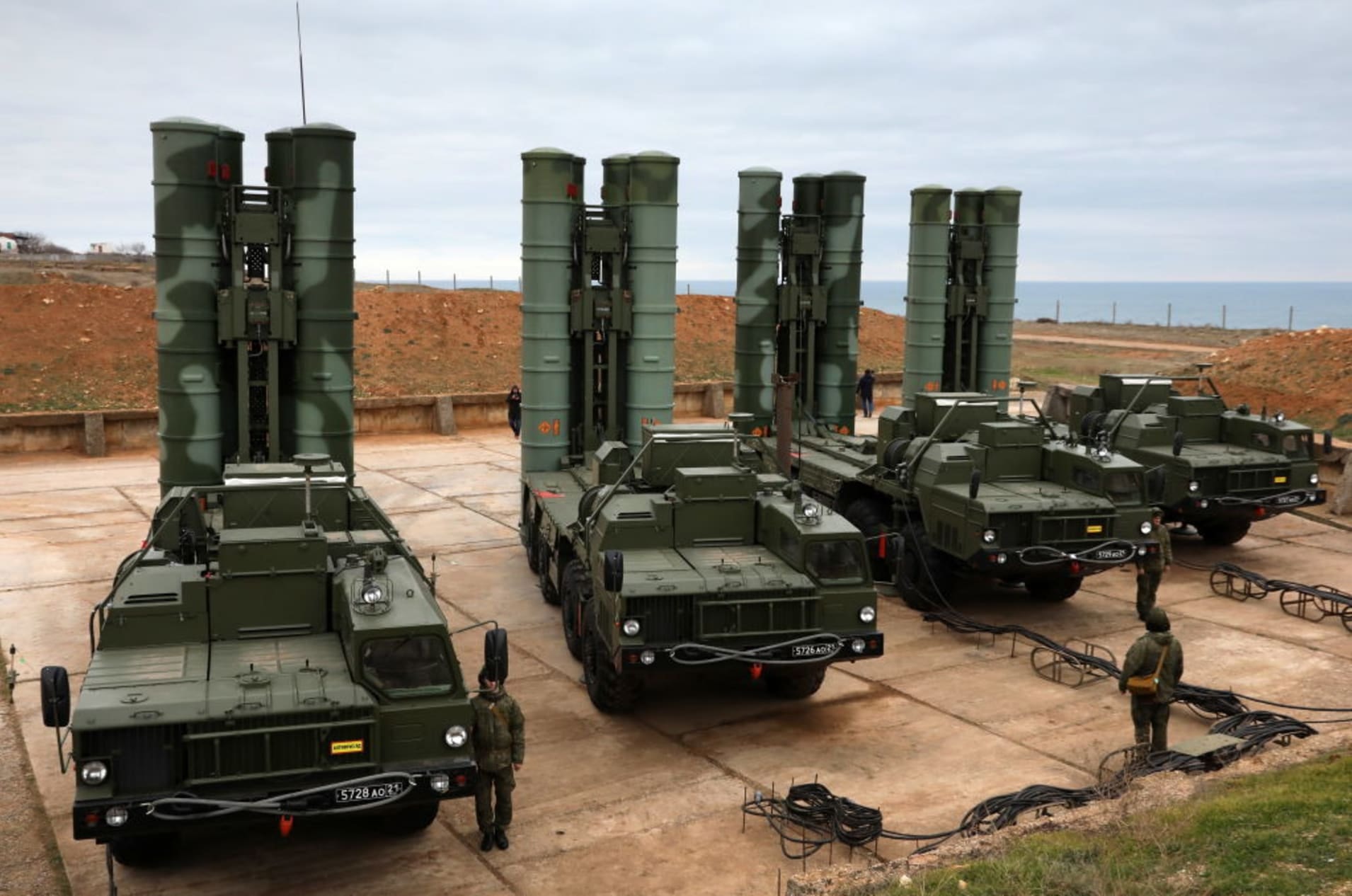 |
| The S-400 missile defense system purchased from Russia has become a card for Türkiye to "bid" with NATO. Photo: TASS |
However, we must also look at the fact that Türkiye is also very dissatisfied with being repeatedly abandoned by the West when Ankara needed the voices and actions of its allies the most. The first test was in 2015, after Türkiye shot down a Russian Su-24 aircraft operating in the Syrian battlefield. The situation of being retaliated by Russia made Turkey panic and had to "resort to NATO" but the US bluntly stated: "That is the business of Turkey and Russia, the US - NATO has nothing to do with it". This attitude makes the Turks wonder whether Article 5 of the NATO Charter, according to which, if any member of NATO is attacked, the entire NATO bloc will respond, is completely meaningless? The second test was the coup that overthrew President Tayyip Erdogan in July 2016. The Ankara government wanted Washington to respond to the request to extradite exiled cleric Fethullah Gulen, the subject considered the mastermind of this failed coup campaign, back to his country for trial. However, the response was the US's ambiguous refusal, causing the already "cold" relationship between the two sides to become even more "frozen".
The Erdogan administration also understands that the US and NATO will not easily abandon their strategic alliance with a regional power as important as Türkiye. The US understands that imposing strong sanctions is a "double-edged sword." If it pushes the Turkish economy deeper into crisis, nationalism and anti-American sentiment will make Ankara even more confrontational and unwilling to give in to Washington.
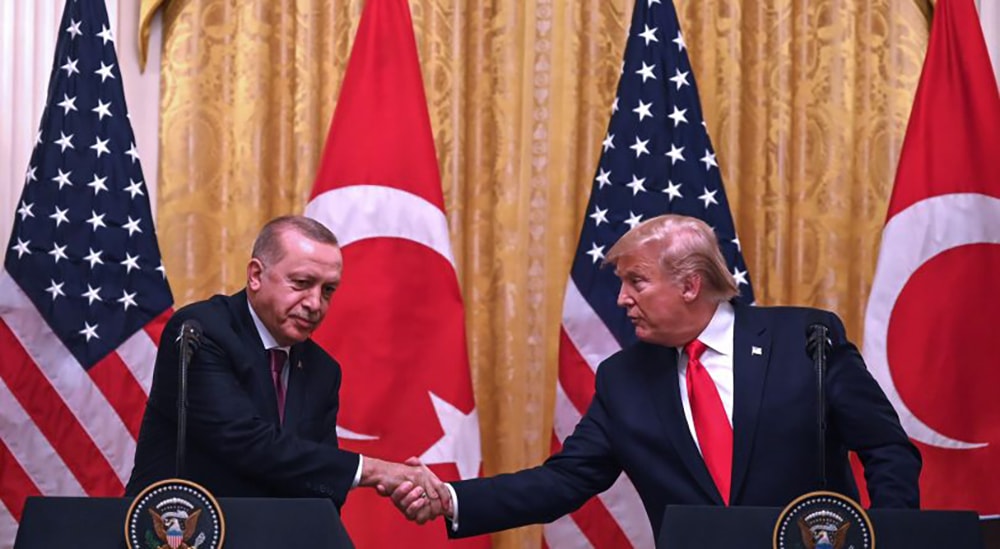 |
| Turkish President Tayyip Erdogan surprised the world by being willing to ignore the US. Photo: Reuters |
Meanwhile, without Türkiye’s support, US strategies in the Middle East will automatically lose their effectiveness. That is why Türkiye always wants to make things worse to gain more benefits for itself in this overly pragmatic relationship. On the other hand, strengthening relations with Russia clearly also brings great benefits to Ankara, because in Moscow there is a Putin who always knows how to “listen and understand” as President Erdogan once admitted.
President Tayyip Erdogan’s East-West balancing strategy is still working as Türkiye’s strategic interests are still on track. And there is no doubt about this choice. Therefore, it can be understood that Foreign Minister Mevlut Cavusoglu’s statement on November 30 is a gesture of “appeasement” to NATO right before the bloc’s summit in London this week. As long as NATO continues to serve Ankara’s strategic interests, the country will not give up easily.

